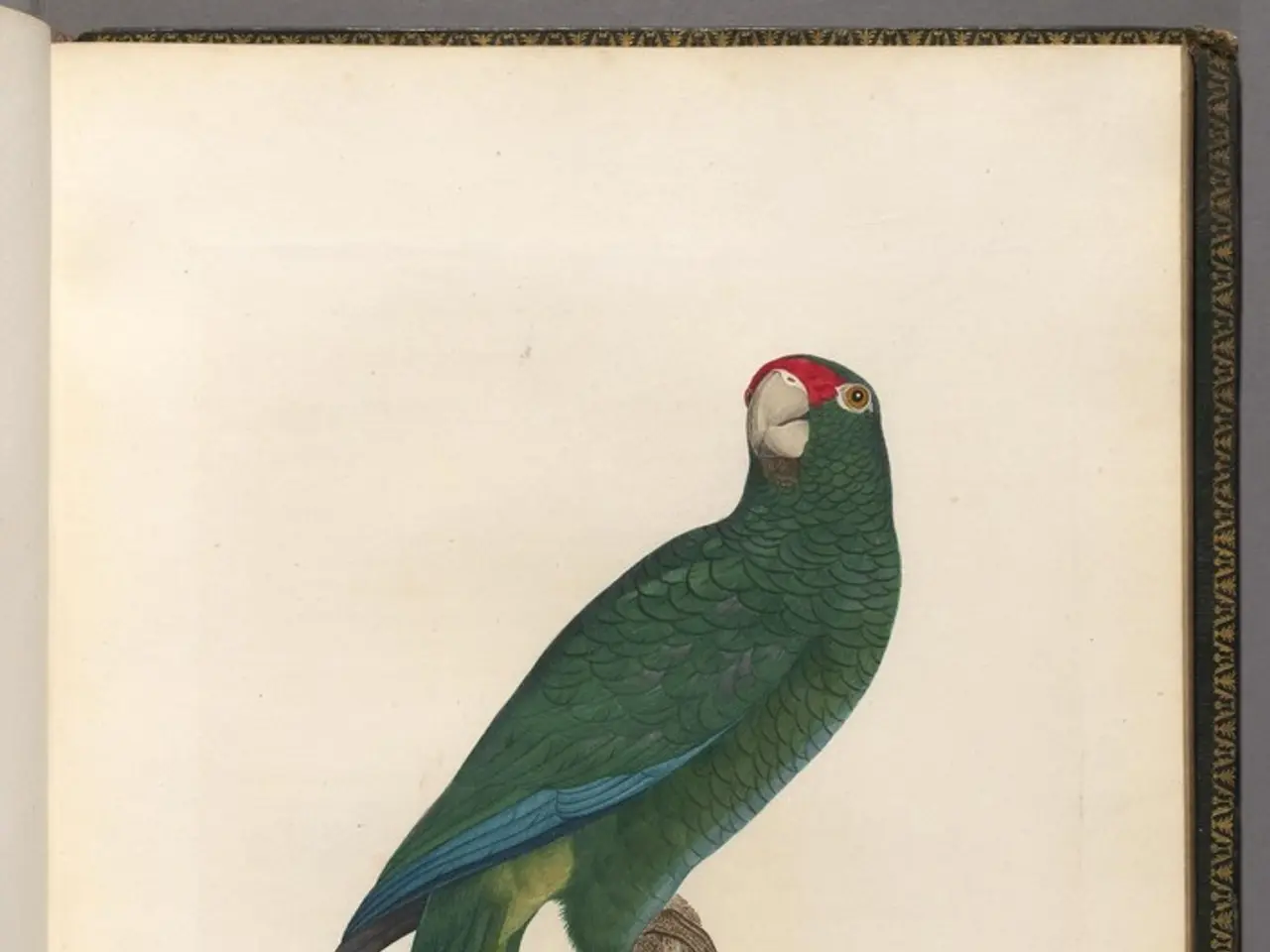Greek Deity Hermes, Known for Swiftness, Cunning, and Messenger Roles
Hermes, the Greek god of speed, travel, messages, trade, and luck, is renowned for his cunning and mischievous nature. Born on Mount Cyllene in Arcadia, he is the son of Zeus and Maia, a member of the Pleiades.
Hermes is best known for his ability to outsmart powerful enemies and rescue gods in need. One such instance is his rescue of Ares from the Aloadae Giants, demonstrating his prowess as a trickster and guide.
Hermes is swift, wearing winged sandals called talaria that allow him to move faster than any other god. He also dons a winged helmet called a petasos for increased speed and concealment.
One of Hermes' most famous symbols is the caduceus, a golden staff with two snakes wrapped around it. This symbol was given to him by Apollo after the famous incident of Hermes stealing Apollo's cattle on the day of his birth. In exchange for the fifty stolen cows, Hermes gifted Apollo the lyre, which he had invented using a turtle shell, horns, and strings from sheep guts.
Hermes is also known for his trickster antics. From infancy, he was renowned as a great liar and thief, earning him the title of the patron god of thieves, liars, and merchants. His influence can be seen in the mortal thief Autolycus, who was either his son or favored follower, known for his cunning and thefts.
Beyond his trickery, Hermes is a guide for souls in the afterlife. He acts as a psychopomp, leading lost souls to the underworld safely and ensuring they reach Hades' realm. This role gives him power over life and death, linking his trickster aspect to more serious, liminal functions concerning transitions between worlds.
Hermes is also a divine messenger, connecting the heavens, Earth, and the underworld. He played a role in the famous love scandal between Aphrodite and Ares, witnessing their capture and joking with Apollo about being caught in a trap himself.
Hermes shares similarities with several other mythological figures. He is similar to the Roman god Mercury, the Norse trickster god Loki, and the Egyptian god of wisdom Thoth, each having roles as messengers, tricksters, or guides between worlds.
Despite his mischievous nature, Hermes is a protector of travelers, merchants, and even thieves. He helped Odysseus on his journey home from Troy by providing him with a magical herb called moly, which protected him from witch Circe's spells.
Today, Hermes remains influential, with his symbols appearing in medicine, business, and storytelling. He is the god of speed, travel, messages, trade, and luck, a multifaceted figure not only as a mischievous god of theft, trade, and cunning but also as a vital mediator and guide between divine, mortal, and underworld realms.
[1] Graves, Robert. The Greek Myths. Vol. 1. Penguin Classics, 1955. [2] Burkert, Walter. Greek Religion. Harvard University Press, 1985. [3] Homer. The Odyssey. Translated by Samuel Butler, 1898. [4] Nilsson, Martin P. Greek Folk Religion. University of California Press, 1940.
Hermes, being the god of travel and messages, aided Odysseus on his journey home after the fall of Troy, providing him a magical herb called moly to protect against witch Circe's spells. Moreover, Hermes still inspires modern lifestyles as he is revered in sectors like medicine, business, and storytelling, symbolizing a multifaceted figure associated with speed, travel, and luck.




